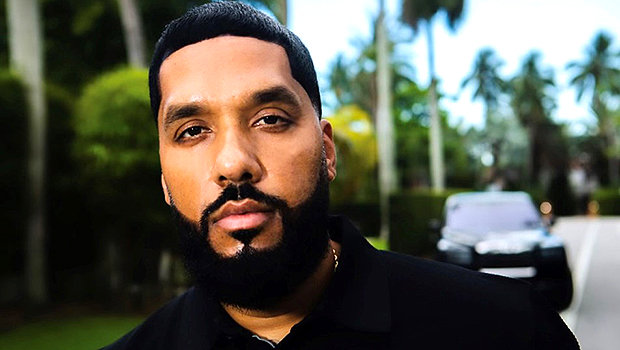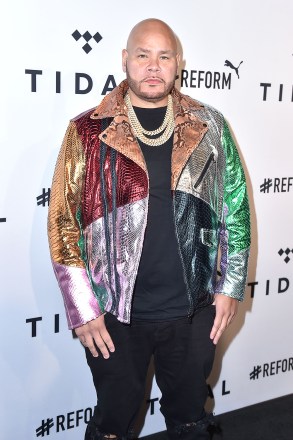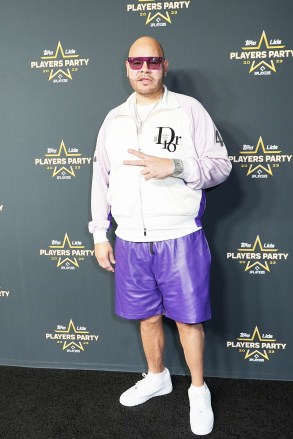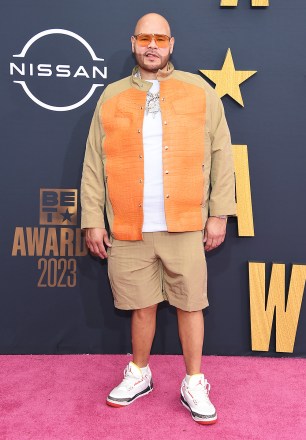View gallery
The tagline on Lobus is “Culture in an asset class” and “Today, you can buy a share of Apple. Tomorrow, you can buy a share of Broadway.” Had this venture been around when Andre “Dre” Lyon was younger, he would have put all his money into OutKast. “Growing up, if the hip-hop duo OutKast was an investable asset, that is something I would have invested all of my money into,” he tells HollywoodLife when discussing his partnership with the Lobu platform. “If I had spent all my money on everything that OutKast did or any affiliate of OutKast, I would support their music or anything they were doing.”
“So basically,” Dre tells HL, “if they were an investable asset that I could press invest on back in the day, I would have gained more wealth because I could invest in my favorite duo. That’s what we’re doing and working towards realizing that.”
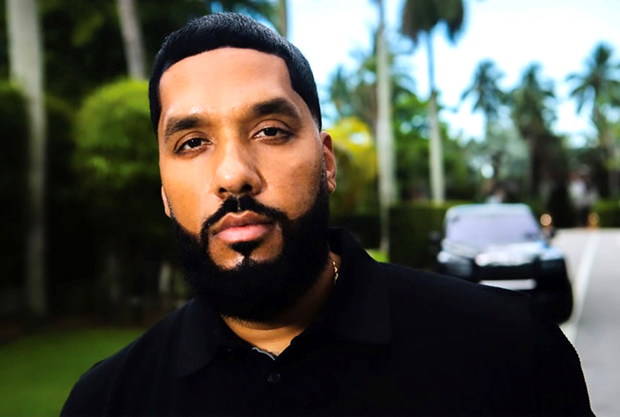

Dre has partnered with Lobus cofounders Lori Holtz and Sarah Wendell Sherrill on Lobus, a platform that commoditizes blockchain tech in a way that allows fans to invest in their favorite creatives’ futures, and for these artists “to maintain partial ownership of the works they sell so that they can benefit from secondary transactions down the line,” per TechCrunch. For example, if one paints a painting and sells it for $5,000, that’s the most they get. That painter doesn’t get a cut when that same painting sells for $10k at an auction years later.
One of the platform’s goals is to help artists maintain “fractional ownership” through these secondary sales, ensuring they always make some money off their art. Another goal, as Dre tells HL, is to help investors make money for their future – and their families futures.
“What motivated me to partner with Lobus was realizing that there is a way to create generational wealth,” says Dre. “To me, Lobus was an entry point into the world of finance. Our cofounders, Lori Hotz and Sarah Wendell Sherrill, showed me how generational wealth is created in the world of finance, and it’s important that I create that for my family and also share that knowledge with my peers.”
For artists like Dre, this is a possible chance to generate a different source of income instead of having to rely on paltry streaming payouts or costly tours. While Dre is well-established in the hip-hop world – having worked with Fat Joe (“All The Way Up”), Lil Wayne (“On Fire”), Nas (“Make The World Go Round”), and more – those just starting out could get an income boost. Plus, those willing to invest in Dre’s creative future could also do so through Lobus.
In an EXCLUSIVE interview, Dre explains how Lobus works and why this venture looks to bring about a whole new financial revolution.
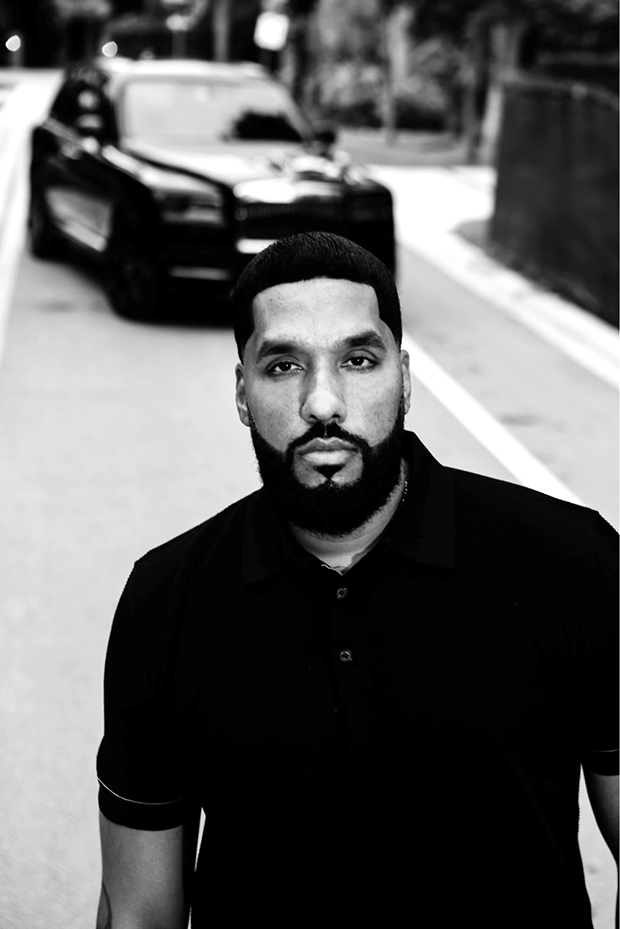

HollywoodLife: In the recent rise of digital investments and cryptocurrency, can you explain how this new platform differs from an NFT? How does this actually work?
Dre: The reason our platform works is because this generation is very hip to investing. I think the emergence of NFTs and cryptocurrencies was almost like a gateway drug into the world of investing. People started dabbling with that, and now we have so many platforms with people from our community speaking on financial literacy, investing, and growing your wealth. What I love about what we’re doing with Lobus is we’re creating a platform where creatives like myself can be an investment. We like to call ourselves brands all the time, but our platform is going to turn creatives like myself into an investable asset, to where fans of my music can have an opportunity to invest in me as if I was a stock.
Growing up, if the hip-hop duo OutKast was an investable asset, that is something I would have invested all of my money into. If I had spent all my money on everything that OutKast did or any affiliate of OutKast, I would support their music or anything they were doing. So basically, if they were an investable asset that I could press invest on back in the day, I would have gained more wealth because I could invest in my favorite duo. That’s what we’re doing, and working towards realizing that.
Is there a threshold for artists to offer shares of their discography? Like, can a bedroom producer go public with their SoundCloud account? Or will there be guidelines for artists in applying for this venture?
No, there is no threshold. The goal of Lobus is to revolutionize the world of finance and create a new financial model. That is first and above everything. We want to be accessible to every creator — the same way you can go out and buy an Apple Mac or MPC beat machine is the same way we want creatives to use our platform to have their fans invest in their career. There is no threshold, and you don’t have to have 5,000 fans to be a part of what we are doing. The idea behind what we are doing is we want the creator to be an owner. We want the creator to sit at the head of the table.
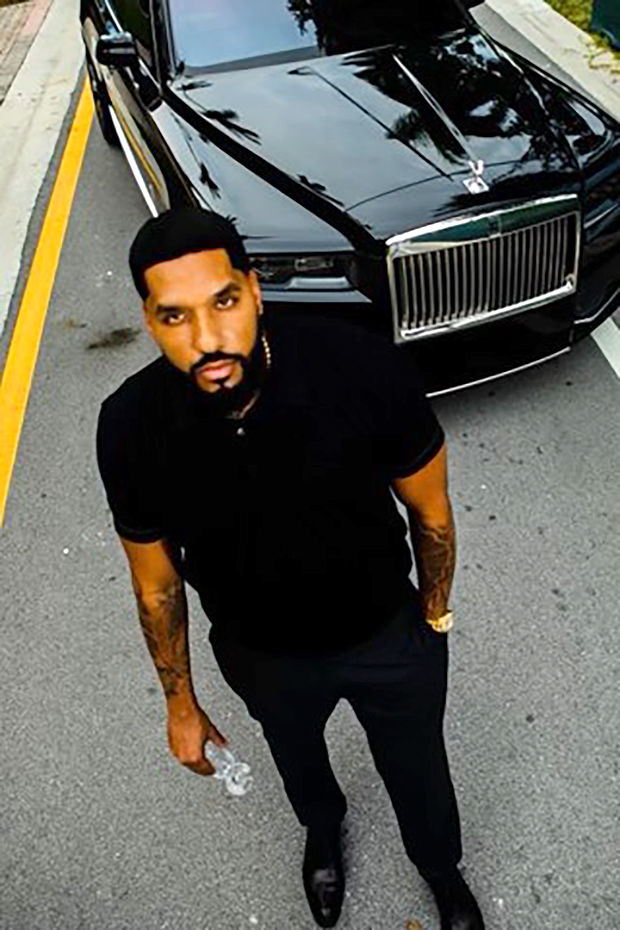

Would the artist retain ownership of their intellectual property? Like, what – in your opinion – is the main draw to going this route?
Financial freedom is the main draw and a model that is set up for an artist to create wealth for themselves. I have spent two decades alongside my producer partner, Cool, creating wealth for the record companies that we produced for. We’ve been blessed to have a successful career and financially blessed to make the money we have, but it is not even a slice of the pie compared to what the record companies or the publishing companies make. We want creatives to be able to have an IP, put it in a fund, be a part of the carry of the fund, and create real wealth.
Lobus CEO Lori Hotz once told me that within the 15 years of her finance career, she realized that in addition to salary and bonus, generational wealth was created by being a part of the general partnership of a fund and receiving carried interest. That is the whole idea behind what we are doing. We want the creator to have ownership and to invest their blood, sweat, and tears into something that will produce wealth well beyond their own years. That way, their kids’ kids can eat off their hard work.
This venture is open for “artists, musicians, filmmakers, influencers, and others” to “monetize their intellectual property.” Would someone have a share in, say, a YouTube video and have a profit share in that video?
All streams of income would be in play. The money that you make off YouTube is a stream of income that is part of your catalog, that’s part of your IP. That would be something that you can include. You don’t have to include everything that you own into the fund, but if your YouTube videos and your share of the revenue stream that comes from that is something you want to put into the fund, then absolutely you can do that.
Is there any way that these investments might be insured? If someone invests in an artist, would they be able to get that investment back if that artist happened to get Milkshake Duck’d?
Everything in life is a risk. I spoke to someone today, and they said, “Hey, what if this person gets hit by a bus!” I was like you can’t think like that, but there is risk in everything that you do. What Lobus is doing is minimizing that risk. One of the key things for the investors is that we minimize the risk as much as possible for the investors. We want everyone to come out as a winner.
Lastly, is there anything else you want to add about Lobus that creators may want to know?
We have some exciting things happening. In a few weeks, we are going to be making a huge announcement about Lobus and one of our first offerings. Our goals are to put creatives first, make creators owners of everything that they create, help creators create generational wealth, put creatives at the head of the table, and be in the same room as a lot of decision-makers that make decisions on CEO salaries.
I think the ceiling for us is that we are talking to the President or CEO of a major corporation, but there is another level above that. We want the creatives to go straight to the top with their ideas and create financial freedom. A lot of creators have ideas outside of just being an artist, a music producer, a painter, a scriptwriter, or a Broadway play actor.
We have tons of ideas, but we never really have the financial freedom to go out there and do these things, so we are stuck doing the things that we know how to do to pay the bills. We want to do is to give creatives an opportunity to have some freedom financially to go out there and really be the best version of you.
Click to Subscribe to Get Our Free HollywoodLife Daily Newsletter to get the hottest celeb news.
This story originally appeared on Hollywoodlife

